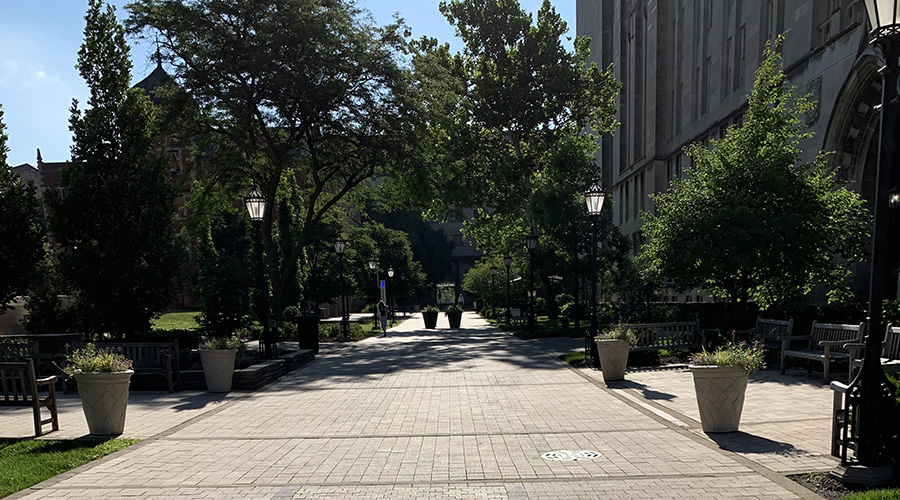« Back to Facilities Management News Home
« Lighting
Event Release: LRC Photometry Institute Seminar
TROY, N.Y. - Evaluation methods and testing requirements for LED and solid-state lighting products are rapidly changing as new standards, metrics, and labeling programs become available to the lighting industry. As a result, the Lighting Research Center (LRC) has developed a new professional lighting seminar, the Photometry Institute, to be held April 11-12, 2012. In this two-day, interactive course, participants will come away with the knowledge and skills needed to establish and conduct photometric testing and evaluation of a wide range of lighting products and systems.
This practical course is geared toward engineers, technicians, managers, testing personnel, and product designers who want to learn more about photometric, colorimetric, and related evaluation of lighting products and prototypes, including the latest requirements for testing LED and traditional lighting products. The course will include lectures, equipment demonstrations, and laboratory exercises guided by the LRC’s expert faculty and staff. The hands-on lessons will take place in the LRC’s extensive, NVLAP (National Voluntary Laboratory Accreditation Program)-accredited photometric laboratories (LRC’s NVLAP lab code: 200480-0), located in Troy, New York.
“The growing use of LEDs and solid-state lighting has led to many recent changes in lighting product requirements and evaluation methods,” explained Yiting Zhu, Ph.D., LRC manager of technology, testing and evaluation. “In this course, we teach not only the basics of photometric measurement and equipment, but also how to interpret and apply photometric data when evaluating product prototypes and models.”
The two-day course curriculum includes terminology and concepts used in lighting measurement and product evaluation; overviews of testing requirements for labeling programs such as ENERGY STAR®, Lighting Facts, and others; operation of various types of measurement equipment; best practices and protocols for photometric laboratories; LED and solid-state lighting testing requirements and evaluation methods; how to perform standard photometric and colorimetric measurements and calculations; and ways for a company to inexpensively assemble photometric testing capabilities in-house.
The Photometry Institute is made possible through a grant from the New York State Energy Research and Development Authority (NYSERDA) and is supported by the Alliance for Solid-State Illumination Systems and Technology (ASSIST).
Participants will earn two continuing education units (CEUs) for completing the Photometry Institute and will receive a Continuing Education Certificate in photometry. Seating is limited, so early registration is encouraged.
For complete information and registration information, please visit www.lrc.rpi.edu/education/outreachEducation/PhotometryInstitute.asp.
About the Lighting Research Center
The Lighting Research Center (LRC) is part of Rensselaer Polytechnic Institute of Troy, N.Y., and is the leading university-based research center devoted to lighting. The LRC offers the world's premier graduate education in lighting, including one- and two-year master's programs and a Ph.D. program. Since 1988 the LRC has built an international reputation as a reliable source for objective information about lighting technologies, applications, and products. The LRC also provides training programs for government agencies, utilities, contractors, lighting designers, and other lighting professionals. Visit www.lrc.rpi.edu.
About Rensselaer Polytechnic Institute
Rensselaer Polytechnic Institute, founded in 1824, is the nation's oldest technological university. The university offers bachelor's, master's, and doctoral degrees in engineering, the sciences, information technology, architecture, management, and the humanities and social sciences. Institute programs serve undergraduates, graduate students, and working professionals around the world. Rensselaer faculty are known for pre-eminence in research conducted in a wide range of fields, with particular emphasis in biotechnology, nanotechnology, information technology, and the media arts and technology. The Institute is well known for its success in the transfer of technology from the laboratory to the marketplace so that new discoveries and inventions benefit human life, protect the environment, and strengthen economic development.
About NYSERDA
NYSERDA, a public benefit corporation, offers objective information and analysis, innovative programs, technical expertise and funding to help New Yorkers increase energy efficiency, save money, use renewable energy, and reduce their reliance on fossil fuels. NYSERDA professionals work to protect our environment and create clean-energy jobs. NYSERDA has been developing partnerships to advance innovative energy solutions in New York since 1975. Visit nyserda.ny.gov.
About ASSIST
The Alliance for Solid-State Illumination Systems and Technologies (ASSIST) was established in 2002 by the Lighting Research Center as a collaboration among researchers, manufacturers, and government organizations. ASSIST’s mission is to enable the broad adoption of solid-state lighting by providing factual information based on applied research and by visualizing future applications. The LRC conducts research, demonstration, and educational activities on behalf of ASSIST. ASSIST is sponsored by Acuity Brands Lighting; Amerlux Global Lighting Solutions; Bridgelux; China Solid State Lighting Alliance; Cirrus Logic; Cree; Everlight Electronics Co., Ltd.; Federal Aviation Administration; GE Lighting Solutions; ITRI, Industrial Technology Research Institute; Intematix Corp.; LG Electronics; LG Innotek; Lighting Science Group; Lite-On; NeoPac Lighting; New York State Energy Research and Development Authority (NYSERDA); OSRAM SYLVANIA/OSRAM Opto Semiconductors; Philips Lighting; POSCO LED; Sharp Laboratories of America; Seoul Semiconductor; United States Environmental Protection Agency; WAC Lighting; WattStopper. Visit www.lrc.rpi.edu/assist.
More From 2/22/2012 on FacilitiesNet







